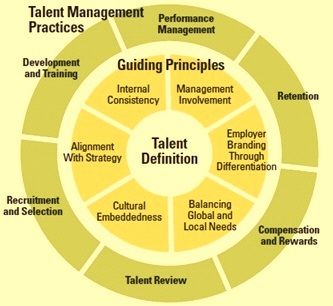Strategic talent management is the process of identifying, developing, and retaining employees who can help a company achieve its objectives. It involves managing employee skills and aligning them with business goals. Here are eight key elements of strategic talent management.
Understanding Business Goals
The first step in strategic talent management is to understand the business goals of a company. This includes identifying the skills and talents that are required to achieve these goals. A company must also assess the current talent pool available to determine if there are any gaps in skills that need to be addressed.
Recruiting and Hiring
Once the skills and talent gaps have been identified, the next step is to recruit and hire the right people. Top performers who have the skills and talents necessary to achieve business goals should be targeted. Recruitment should be done through a variety of channels, including social media, job fairs, and career websites.
Onboarding and Training
New employees should be provided with a comprehensive onboarding and training program to help them gain the skills and knowledge necessary to perform their roles effectively. The training should be tailored to the needs of the employee and should include everything from technical skills to soft skills such as communication and teamwork.
Performance Management
Once employees are on board and trained to perform their roles, it is important to manage their performance. This includes setting clear expectations, providing ongoing feedback, and addressing performance issues as they arise. Performance management should be tied to business goals and should help drive employee development and engagement.
Succession Planning
To ensure that the company is able to continue to meet its business goals in the future, it is important to have a succession plan in place. Succession planning involves identifying and developing employees who have the potential to take on leadership roles in the company.
Talent Development
To help retain top performers and develop their skills, it is important to invest in talent development. This could include offering training, mentoring, coaching, and other development opportunities. Talent development should be aligned with business goals and should focus on helping employees achieve their potential.
Diversity and Inclusion
A strategic approach to talent management should include a focus on diversity and inclusion. This involves creating a workplace culture that values and welcomes differences in backgrounds, experiences, and perspectives. A diverse and inclusive workplace can help attract and retain top talent and can drive business success.
You might find these FREE courses useful
- Strategic Management and Innovation Specialization
- Top Essentials Of Management And Strategic Planning Courses – Learn Essentials Of Management And Strategic Planning Online
- Essentials of Management and Strategic Planning
- Strategic Management
Data and Analytics
Finally, data and analytics should be used to measure the effectiveness of talent management strategies. This includes tracking metrics such as employee engagement, retention rates, and performance. Data analysis can help identify areas for improvement and can inform future talent management decisions.
In summary, strategic talent management is vital for achieving business success. By understanding business goals, recruiting and hiring the right people, providing comprehensive onboarding and training, managing performance, planning for succession, investing in talent development, promoting diversity and inclusion, and using data and analytics, companies can create a high-performing workforce that drives business success.
